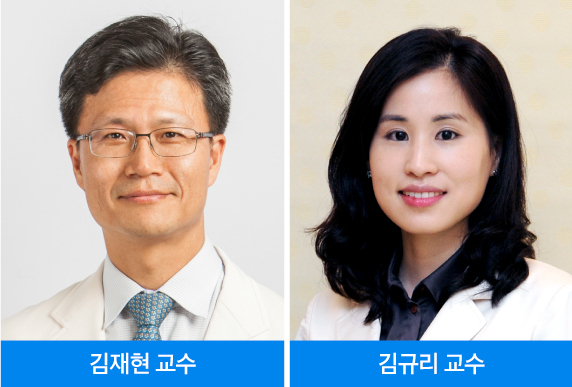■ Professor Kim Jae-hyeon, Department of Endocrinology, Samsung Hospital Seoul
An eight-year follow-up of approximately 10,000 adult type 1 diabetic patients
“Stigma increases the risk of mental illness… “Awareness is urgently needed.”
Image today
A study found that type 1 diabetes patients who cannot produce insulin in their bodies are more than twice as likely to develop mental health disorders such as depression.
The research team led by Kim Jae-hyeon and Kim Gyu-ri, professors in the Department of Endocrinology at Samsung Hospital Seoul, followed 10,391 patients and 51,995 members of the general public who were diagnosed with type 2 diabetes. 1 after adulthood for an average. of 7.94 years based on National Health Insurance data from 2009 to 2020. It was announced on the 3rd that it appeared this way.
Type 1 diabetes, unlike type 2 diabetes, in which insulin resistance (a phenomenon in which the body’s cells do not respond to insulin) occurs due to factors such as lack of exercise and western eating habits, caused by the destruction of beta cells in the pancreas through an autoimmune mechanism. It is a chronic disease that requires lifelong management because it does not produce insulin at all.
Kim Jae-hyeon (left) and Kim Gyu-ri, professors in the Department of Endocrinology at Samsung Hospital Seoul. Photo provided by Samsung Seoul Hospital
According to the analysis, the prevalence of mental health disorders among patients diagnosed with type 1 diabetes as adults was 66 per 1,000 person-years, which was more than twice the general population. in general (29 per 1,000 person-years). As a result of comparing the risk of each mental illness, patients diagnosed with type 1 diabetes as adults were 4 times more likely to abuse alcohol and drugs, 3 times more likely to have depression and were 2.6 times more likely to have personality and behavioral problems, 2.5 times more likely to have mood disorders and eating disorders, and to have anxiety than the general population and 1.9 times more likely to have a stress disorder the danger.
Type 1 diabetes is commonly known as ‘juvenile diabetes’ as it occurs mainly in children and adolescents. However, experts note that type 1 diabetes can be diagnosed at any age and that the number of patients is increasing. Academia also estimates that, as of 2021, there will be more than 8.4 million people with type 1 diabetes worldwide, and that number will rise to between 13.5 and 17.4 million in 2040. The UK Biobank study which showed that 42% of type 1 diabetes patients are between 31 and 60 years of age also confirms that the demand for management of adult patients is going the size.
On the other hand, Korean society does not reflect this fact correctly. The stigma score for type 1 diabetes in Korea is 59 points, which is much higher than in Australia (53 points), Turkey (47 points), and Denmark (43 points). It is noted that this social perception makes the treatment and management of adult patients with type 1 diabetes more difficult.
Professor Kim said, “There are treatments that allow blood sugar monitoring and insulin injection without external exposure, such as hybrid closed-loop systems, but they are expensive and inaccessible, so they are not relevant to all diabetes patients.” Professor Kim argues that new and innovative technologies are needed especially for patients with type 1 diabetes and mental health disorders .
According to existing research, type 1 diabetes patients suffering from mental illnesses such as eating disorders, depression, and anxiety had difficulty controlling their levels. their blood sugar. Despite this, it has been reported that 76% of adults with type 1 diabetes have never received mental health support. Professor Kim emphasized, “I hope that social awareness and treatment systems will improve as soon as possible so that adult patients with type 1 diabetes can also benefit. “
< 저작권자 ⓒ 서울경제, 무단 전재 및 재배포 금지 >
2024-05-03 22:30:00
#Diabetic #patients #cry #prejudice #times #risk #depression #헬시타임



